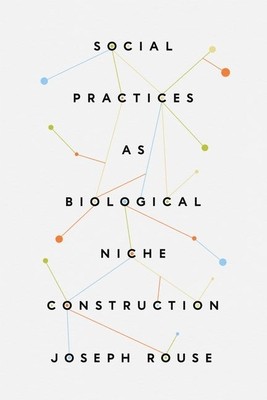
- We will send in 10–14 business days.
- Author: Joseph Rouse
- Publisher: University of Chicago Press
- ISBN-10: 022682795X
- ISBN-13: 9780226827957
- Format: 15.2 x 22.9 x 2.2 cm, hardcover
- Language: English
- SAVE -10% with code: EXTRA
Reviews
Description
A broad, synthetic philosophy of nature focused on human sociality. In his latest book, Joseph Rouse takes his innovative work to the next level by articulating an integrated philosophy of society-as-part-of-nature. He shows how and why we ought to unite our biological conception of human beings as animals with our sociocultural and psychological conceptions of human beings as persons and acculturated agents. Rouse's philosophy engages with biological understandings of human bodies and their environments as well as the diverse practices and institutions through which people live and engage with one another. Familiar conceptual separations of natural, social, and mental "worlds" did not arise by happenstance, he argues, but often for principled reasons that have left those divisions deeply entrenched in contemporary intellectual life. Those reasons are now eroding in light of new developments across the disciplines, but that erosion has not been sufficient to produce more adequately integrated conceptual alternatives until now. Social Practices and Biological Niche Construction shows how the characteristic plasticity, plurality, and critical contestation of human ways of life can best be understood as evolved and evolving relations among human organisms and their distinctive biological environments. It also highlights the constitutive interdependence of those ways of life with many other organisms, from microbial populations to certain plants and animals, and explores the consequences of this in-depth, noting, for instance, how the integration of the natural and social also provides new insights on central issues in social theory, such as the body, language, normativity, and power.EXTRA 10 % discount with code: EXTRA
The promotion ends in 18d.15:23:31
The discount code is valid when purchasing from 10 €. Discounts do not stack.
- Author: Joseph Rouse
- Publisher: University of Chicago Press
- ISBN-10: 022682795X
- ISBN-13: 9780226827957
- Format: 15.2 x 22.9 x 2.2 cm, hardcover
- Language: English English


Reviews